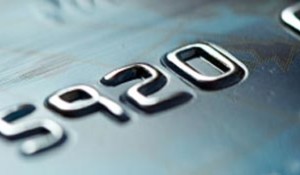When faced with a big bill, it’s tempting to use your credit card and worry about it later. That’s what credit is for, right? Yet before you hand over the plastic it’s a good idea to think about the implications of paying off bills over time. Take a minute to stop and think about whether or not credit is really the best form of payment for your purchase. In some cases, you may be better off temporarily dipping into savings or taking a bite out of your paycheque instead. Here are five things to avoid purchasing with a credit card.
1. Medical bills
There are few things that are as stressful as a medical emergency followed up with a massive bill. It’s hard to predict when medical crisis will strike, so it’s not something you can really plan and save for either. As a result, it may be tempting to put it on your card. However, this can backfire and add to the stress of your recovery when you end up in greater debt. Most hospitals or doctor’s offices are willing to work with patients using reasonable instalment plans, and they may not even charge you interest.
2. Mortgage payments
Paying for one debt by creating another is a cycle that you don’t want to get into. If your bank account is looking low, you may wish to charge your mortgage payment. However, not only do many mortgage companies not allow this, but you’ll most likely end up being charged a high rate of interest and fees. You’re already being charged enough interest for your mortgage, so don’t create a bigger burden with your credit card. If you’re having difficulty balancing the budget, try taking financial planning courses with training.com.au to gain some tools that can help.
3. Taxes
Do you need to pay back the IRS or the HMRC? Both charge you a hefty processing fee for putting tax bills on a credit card. This is because government agencies usually use third-party payment processing companies rather than handle the transactions themselves. Credit card fees cost roughly 2% of the total bill, in addition to other flat fees. This may not seem like much, but if you owe several thousand in taxes, you’ll pay nearly $100 in fees!
4. A New Car
Racking up debt with a new set of wheels is not the best idea, again due to transaction fees, high interest rates, and processing fees. You’ll also max out your credit if you make a big purchase like this, which will lower your credit score and make it harder to obtain financing in the future. Try taking out a loan through the bank instead, which will offer you far better interest rates and could even boost your credit score.
5. University Tuition
Putting university tuition on credit may seem like an investment in your future that you’ll easily be able to pay off. Yet government-backed student loans are a far better prospect. Like the new car example, you’ll get a more favourable interest rate and avoid maxing out your credit if you get a more traditional loan. You also may be able to postpone repayment on a student loan until after graduation, whereas repayment on a credit card bill begins immediately.
Categories: Credit Cards

 Overdraft or Credit Card?
Overdraft or Credit Card?  How to Find the Best Credit Cards Offering Travel Rewards
How to Find the Best Credit Cards Offering Travel Rewards  The Difference Between Business Credit Cards and Business Lines of Credit
The Difference Between Business Credit Cards and Business Lines of Credit
Leave a Reply